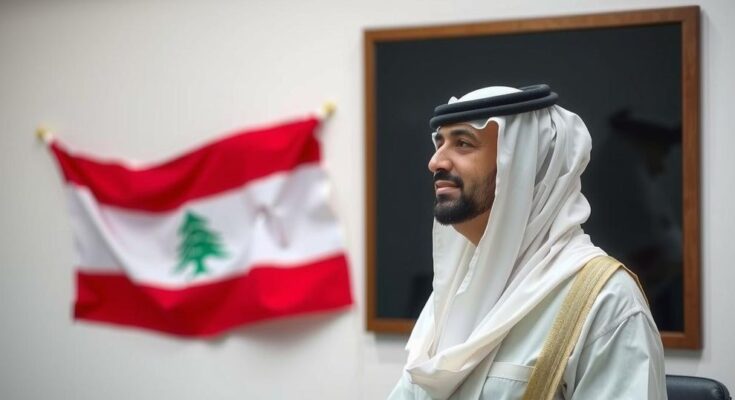Lebanon is set to extradite Egyptian activist Abdulrahman al-Qaradawi to the UAE, raising legal and humanitarian concerns. His lawyer claims that the extradition is unlawful as Egypt had made a prior request for him, and argues that there is no extradition treaty between Lebanon and the UAE. Al-Qaradawi was detained based on an Egyptian arrest warrant related to charges of terrorism and opposing the state.
Lebanon is expediting the process to extradite Egyptian activist Abdulrahman al-Qaradawi to the United Arab Emirates (UAE), with expectations for his handover before the parliamentary session scheduled for January 9. His lawyer, Mohammad Sablouh, expressed concerns regarding the legality of this action, emphasizing that Al-Qaradawi should not be extradited as Egypt has filed a prior request for his extradition. Sablouh pointed out the absence of an extradition treaty between Lebanon and the UAE and argued that the UAE’s request was illegal, lacking an arrest warrant from Lebanese authorities.
Sablouh conveyed that Al-Qaradawi’s recent detention at Lebanon’s Masnaa border crossing was prompted by an Egyptian arrest warrant. This warrant is based on a judicial ruling in Egypt that sentenced him to five years in prison in absentia on charges of opposing the state and inciting terrorism. Al-Qaradawi is a prominent critic of the Egyptian President Abdel Fattah el-Sisi, who led a coup d’état in 2013 against the democratically elected government, resulting in widespread persecution of the Muslim Brotherhood.
Al-Qaradawi also holds Turkish nationality, having lived in Turkey, and anticipators are appealing for the Turkish government to assist in ensuring his safe return. Notably, the extradition request from the UAE was formalized after the Lebanese embassy received it on December 31, raising fears regarding Al-Qaradawi’s potential fate if extradited, given the UAE’s known reputation for curtailing dissent and human rights abuses.
The circumstances surrounding Al-Qaradawi’s potential extradition are complex and rooted in broader geopolitical tensions. Al-Qaradawi is a vocal opponent of the Egyptian regime and a figure associated with the Muslim Brotherhood, which has been designated a terrorist organization since 2013 in Egypt. His case highlights the significant risks that dissidents face in the region, especially when facing extradition requests influenced by oppressive regimes. Additionally, Lebanon’s legal obligations concerning international human rights conventions come into play, particularly regarding extraditions that may lead to torture or unlawful treatment of individuals.
In summary, the impending extradition of Abdulrahman al-Qaradawi from Lebanon to the UAE raises serious legal and humanitarian concerns. His lawyer argues that the request lacks legal foundation, as it bypasses existing extradition protocols and neglects the rights guaranteed under international law. As the situation develops, the international community may need to monitor closely the implications for human rights and political dissent in the region.
Original Source: www.newarab.com




